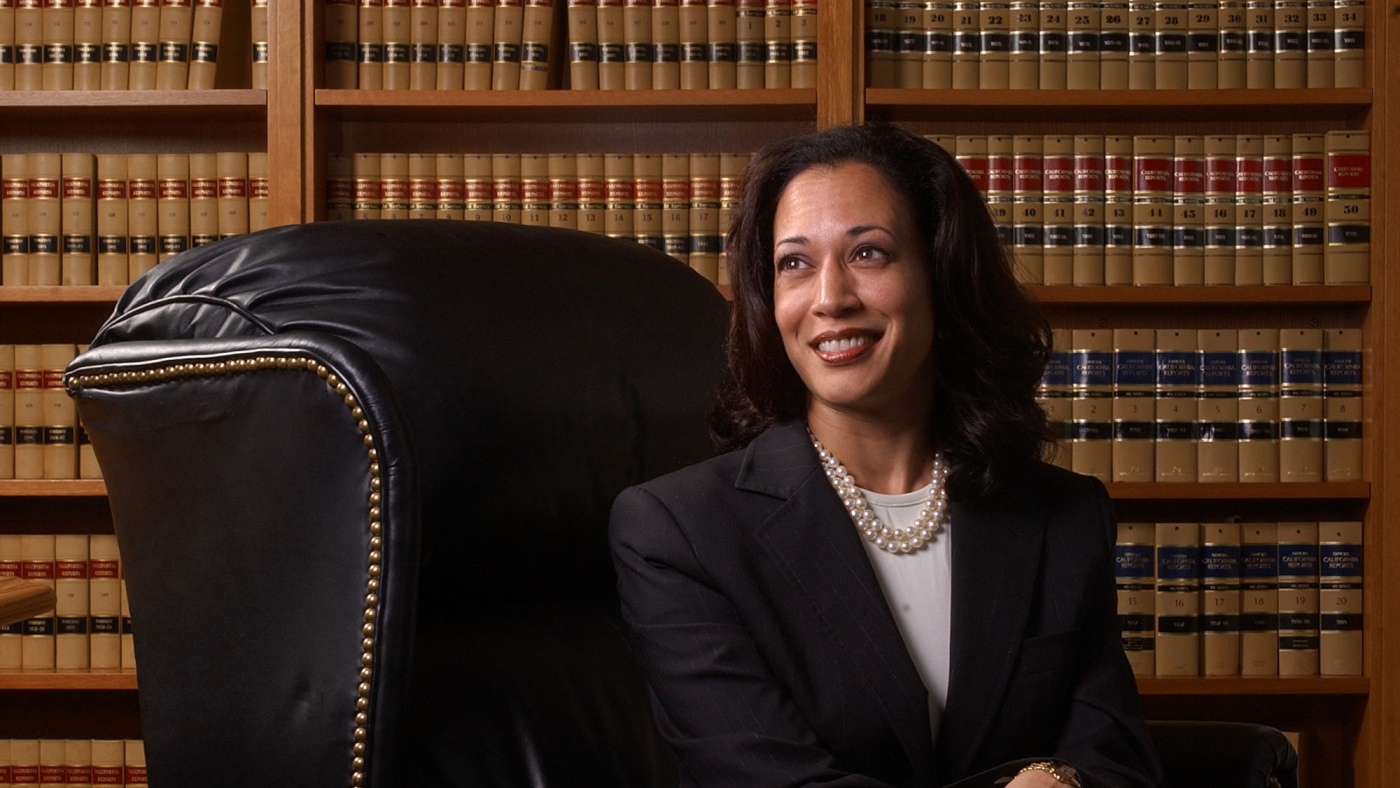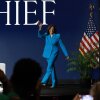
[ad_1]

Kamala Harris, then the San Francisco District Attorney, poses for a portrait on June 18, 2004.
Marcio Jose Sanchez/Associated Press
hide caption
toggle caption
Marcio Jose Sanchez/Associated Press
Two days before President Biden announced he would step back from his push for a second term, his campaign chair Jen O’Malley Dillon, appeared on television, insisting the president would stay in the race.
“He is the best person to take on Donald Trump and prosecute that case,” Dillon said.

But about 72 hours later, it was instead Vice President Harris making that same argument — and reviving a case she had made in 2019, when she ran in a crowded Democratic field seeking the nomination that year.
“Before I was elected as vice president, before I was elected as United States senator, I was the elected attorney general, as I’ve mentioned, of California. And before that, I was a courtroom prosecutor,” Harris said to campaign staffers in Wilmington, Del., on the day after Biden endorsed her to take his place at the top of the Democratic ticket.
“In those roles, I took on perpetrators of all kinds — predators who abused women, fraudsters who ripped off consumers, cheaters who broke the rules for their own gain. So, hear me when I say: I know Donald Trump’s type,” Harris said, in a line that has become the centerpiece of her whirlwind campaign.

Then-California Attorney General Kamala Harris briefs the media after raids on money laundering operations in Los Angeles on Sept. 10, 2014.
Mark Ralston/AFP via Getty Images
hide caption
toggle caption
Mark Ralston/AFP via Getty Images
It’s rhetoric Harris has used before
Back in 2019, when she first ran for president, Harris’ campaign was centered on her career as a prosecutor. Her slogan was “for the people,” which is how Harris would introduce herself in court.

Her pitch to voters is the same that it is today: that with her background as a prosecutor, she is the best person to take on Trump.
But five years ago, Harris’ record as a prosecutor was a liability in her campaign. She faced attacks from her Democratic opponents in the primary debates on her record with marijuana and on cracking down on truancy rates. Voters on the left referred to Harris as a cop.
“And they didn’t mean that as a compliment,” said Paul Butler, a law professor at Georgetown, himself a former public prosecutor.

Former President Donald Trump leaves the courthouse after he was found guilty in his hush money trial at Manhattan Criminal Court on May 30, 2024.
Pool/Getty Images
hide caption
toggle caption
Pool/Getty Images
The message hits differently in 2024
This time around, though, Butler said Harris’ history of being a prosecutor might be perceived by voters differently — because voters’ perceptions of public safety, criminal justice and Trump have changed.

“In some ways, the prosecution of Donald Trump has flipped the way that some progressives and some conservatives think about our criminal legal system,” Butler said. “Now, a lot of people that are on the left are all-in on prosecuting, holding Donald Trump accountable.”
Butler said Harris will likely use her experience as a prosecutor to try to highlight her centrist politics.
“Her message to more conservative audiences will be that her policies as district attorney and California state attorney general demonstrate that she’s not soft on crime,” Butler said. “But her message to progressive audiences will be that her prosecutorial experiences give her unique expertise on the problems in the system, and how to fix them.”

Vice President Harris speaks with police officers after a shooting that left seven people dead in Highland Park, Ill., on July 5, 2022.
Kamil Krzaczynski/AFP via Getty Images
hide caption
toggle caption
Kamil Krzaczynski/AFP via Getty Images
Harris’ pitch was to be ‘smart’ on crime
Trying to tack to the middle on justice issues has long been a part of Harris’ strategy.
In 2003, Harris, a courtroom prosector, launched her first political campaign, running for district attorney of San Francisco.
She rejected the idea that law enforcement officials either had to be tough on crime or soft on crime, said David Chiu, a friend who was part Harris’ “kitchen cabinet” at the time. Instead, she wanted to be “smart” on crime, he said.
“It’s all about getting those conviction rates up, but at the same time thinking about what recidivism rates are and using data to manage reform and accountability,” said Chiu, now San Francisco City Attorney.
When Harris became district attorney, she started initiatives like Back on Track, a job training program for people who were first time nonviolent offenders. Supporters of Harris say that the program, and other efforts by Harris, were ahead of her time.
But some other efforts received criticism — especially her work to cut down on truancy which criminalized parents whose kids were missing school. That history came back to haunt her 2019 campaign.
Allies like Chiu, though, said times have changed. “It was a very different time in 2003 than it is in ‘24,” Chiu said.
[ad_2]